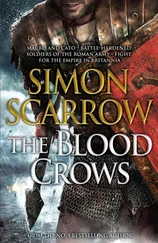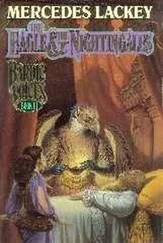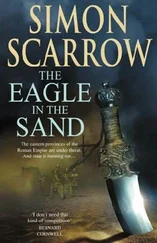Simon Scarrow4_ - The Eagle and the Wolves
Здесь есть возможность читать онлайн «Simon Scarrow4_ - The Eagle and the Wolves» весь текст электронной книги совершенно бесплатно (целиком полную версию без сокращений). В некоторых случаях можно слушать аудио, скачать через торрент в формате fb2 и присутствует краткое содержание. Жанр: Исторические приключения, на английском языке. Описание произведения, (предисловие) а так же отзывы посетителей доступны на портале библиотеки ЛибКат.
- Название:The Eagle and the Wolves
- Автор:
- Жанр:
- Год:неизвестен
- ISBN:нет данных
- Рейтинг книги:4 / 5. Голосов: 1
-
Избранное:Добавить в избранное
- Отзывы:
-
Ваша оценка:
- 80
- 1
- 2
- 3
- 4
- 5
The Eagle and the Wolves: краткое содержание, описание и аннотация
Предлагаем к чтению аннотацию, описание, краткое содержание или предисловие (зависит от того, что написал сам автор книги «The Eagle and the Wolves»). Если вы не нашли необходимую информацию о книге — напишите в комментариях, мы постараемся отыскать её.
The Eagle and the Wolves — читать онлайн бесплатно полную книгу (весь текст) целиком
Ниже представлен текст книги, разбитый по страницам. Система сохранения места последней прочитанной страницы, позволяет с удобством читать онлайн бесплатно книгу «The Eagle and the Wolves», без необходимости каждый раз заново искать на чём Вы остановились. Поставьте закладку, и сможете в любой момент перейти на страницу, на которой закончили чтение.
Интервал:
Закладка:
Plautius knew that he was close to the limit of his physical and mental endurance. A younger man was needed for this job, someone with enough energy to see the job through; to see Caratacus roundly defeated, the British army crushed and the tribes of this land cowed into submission to Rome. Someone like Legate Vespasian, the general reflected.
Although Vespasian had come to command a legion some years later than most of his peers, he had made up for the delay in his hard-driving style. That was why Plautius had singled Vespasian and the Second Legion out for detached duties across the southern sweep of Britain. So far the legate had proved more than worthy of his superior's trust, smashing his way through a succession of hillforts. The trouble was that Vespasian was being rather too successful. Racing ahead of his supply columns the legate had risked exposing his slender lines of communication to enemy raids in force. Plautius had reined him in for a while, ordering him to finish off the remaining hillforts on the Atrebatan borderlands before the Second Legion struck south to seize the large island off the south coast. When the time came for Vespasian to move, the gap between the two Roman forces would widen. Vespasian was equally aware of the danger, and had voiced his concerns in the most recent report that he had sent to his superior. Everything hinged on the continued loyalty of the Atrebatans.
A muffled rumble of thunder rolled across the landscape and General Plautius looked out over the undulating lines of tents towards the horizon where a dull flash of light heralded a break in the weather. A cool light breeze suddenly sprang up and filled the folds of the tent flap with a soft rustling. Plautius would have a good view of the approaching storm. His headquarters had been erected on a slight rise at the centre of the camp. The engineers had protested that the site was not suitable, being some distance from the intersection of the two main thoroughfares, but Plautius wanted to be able to see out over his legions and, beyond them, the palisade and, beyond that, the fall of the downs leading away to the west. In the distance a cluster of tiny sparks of light were visible at one end of a heavily wooded hill.
That was the camp of the enemy, under their commander, Caratacus. For days now the two armies had sat several miles apart, their scouts sparring every so often across the ground that separated the two forces. Plautius knew that if he attempted to move in on the enemy the shrewd Caratacus would simply retreat and draw the legions after him again. So it would go on, and all the time Caratacus would be falling back on his supply lines, just as Plautius was stretching his even further. Accordingly Plautius had halted his advance for the moment and was busy consolidating the chain of forts protecting his flanks and rear. When that was done he would push his legions forward and force the Britons to give more ground. Eventually they must run out of land and would have to turn and fight. Then the Romans would crush them utterly.
That had been the plan, at least, Plautius smiled bitterly. But the plan was always the first casualty in any military operation. A few days ago he had received a worrying report from Vespasian about the presence of another British army forming up to the south of the Tamesis. It was possible that Caratacus intended to join the two armies, in which case he might attempt to steal a march on Plautius and rush south and destroy Vespasian. Alternatively, the Briton might feel strong enough to take on the main Roman force. That, Plautius chided himself, was purely wishful thinking, and he must pay more respect to Caratacus, particularly in the light of the document he had thrown down on his chief clerk's desk: another report, this time from that centurion Vespasian had left in command of the tiny garrison at Calleva.
Centurion Macro detailed a recent skirmish he had won with one of the enemy raiding columns. That was fine, and the general had read through the account with some relish. Then he had reached the section where the centurion reported on the situation in Calleva. Despite Macro's attempt to sound reassuring, by the time Plautius had finished the report his anxiety was fully aroused.
'Sir!'
General Plautius turned round as the chief clerk entered through the entrance at the back of the tent.
'Well?'
'Five days ago, sir.'
'Five days?' Plautius said quietly. Behind him lightning flickered over the deserted farmland. Moments later the thunder cracked and the clerk flinched.
'Quintus, would you mind explaining why this took five days to come to my attention?'
'It seemed like a low-priority report, sir.'
'Did you read it?'
'Yes, sir.'
'All of it?'
The clerk was silent for a moment. 'I can't remember, sir.'
'I see. This isn't very satisfactory, is it, Quintus?'
'No, sir.'
The general stared at him a moment, until the clerk could no longer meet his eyes and looked down, shamed.
'Make sure that every report is read in its entirety from now on. I will not tolerate this kind of cock-up again.'
'Yes, sir.'
'Now fetch me Tribune Quintillus.'
'Tribune Quintillus, sir?'
'Caius Quintillus. Joined the Ninth a few days ago. You should find him in their mess. I'll speak to him in my private quarters at his earliest convenience. Go.'
The clerk turned and hurried out of the tent, keen to get away from his general as quickly as possible. As Plautius watched him disappear through the tent flaps he wondered at his leniency. A few years ago he'd have broken the man back to the ranks for that kind of error. He must be going soft. Further proof of his failings as a commander in the field.
The storm was right over the camp as Tribune Quintillus read through the report. Lightning flashed white at the gap in the curtains left open at the entrance to the general's tent. For the instant of each burst of brilliant light the raindrops outside were held still like weightless shards of twinkling glass in a lurid white-washed world. Then the lightning was gone. At once thunder cracked and boomed, rattling the goblets resting on the table between the two officers. Then there was just the drumming of the rain on the leather tent and the moan of the wind.
General Plautius studied the man sitting opposite, head bowed over the scroll as the tribune scrutinised the report. Quintillus came from one of the older families that still owned several vast estates south of Rome. The tribune was the latest in a long line of aristocrats with distinguished careers in the senate. His appointment to the Ninth Legion was in return for a large interest-free loan Quintillus' father had made to General Plautius some years earlier. But there was more to the appointment than the settling of an old debt. The tribune had connections to the Imperial Palace and the only reason why any aristocrat would cultivate such connections was because he was driven by ambition. Very well, Plautius reflected, an ambitious man was generally a ruthless man, and that would serve the general's current purpose well.
'Most interesting, I'm sure,' Quintillus said, placing the scroll down on the table and gracefully sweeping up his goblet in the same gesture. 'But might I ask what this has to do with me, sir?'
'Everything. I'm sending you to Calleva at first light.'
'Calleva?' For the briefest instant a look of surprise flashed across the tribune's fine features, and then the mask of supreme indifference dropped back in place. 'Well, why not? It would be nice to take in some of the local culture, before we eradicate it…'
'Quite,' Plautius smiled. 'But do try not to give the impression when you meet the natives that alliance with Rome is necessarily a euphemism for surrender. Tends not to go down very well.'
'I'll do my best…'
Читать дальшеИнтервал:
Закладка:
Похожие книги на «The Eagle and the Wolves»
Представляем Вашему вниманию похожие книги на «The Eagle and the Wolves» списком для выбора. Мы отобрали схожую по названию и смыслу литературу в надежде предоставить читателям больше вариантов отыскать новые, интересные, ещё непрочитанные произведения.
Обсуждение, отзывы о книге «The Eagle and the Wolves» и просто собственные мнения читателей. Оставьте ваши комментарии, напишите, что Вы думаете о произведении, его смысле или главных героях. Укажите что конкретно понравилось, а что нет, и почему Вы так считаете.












